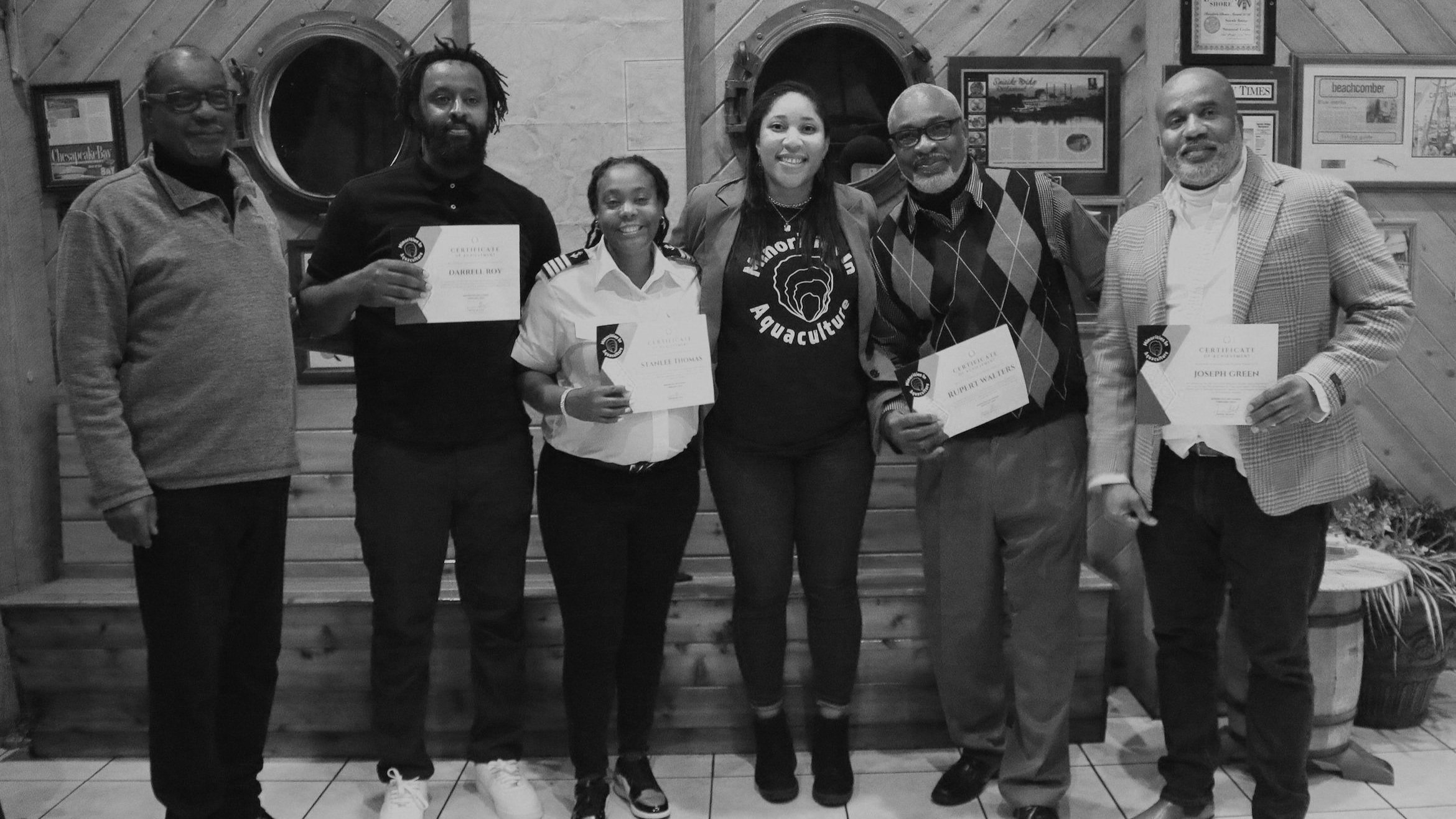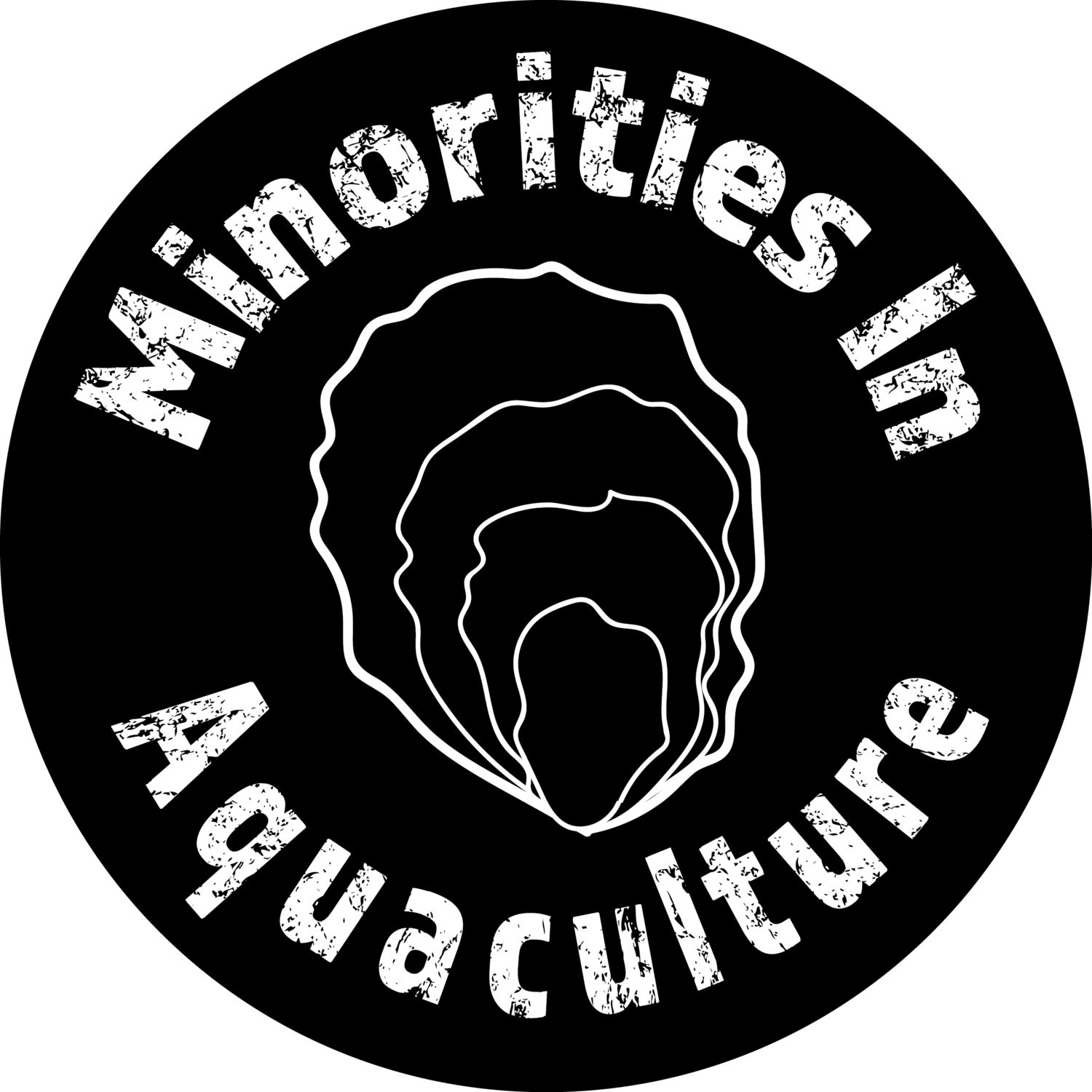
MINORITIES ON COURSE
Offering people of color an opportunity to engage with the last living Black captains on the Chesapeake Bay.
The Minorities On Course program provide captains of the Chesapeake Bay a space to pass along their traditional ecological knowledge, and build a community among minorities in aquaculture. Creating a career pipeline for people of color to become captains on the Chesapeake.
Designed to assist in the completion of the U.S. Coast Guard 100-ton Captain’s License Course.
IN-PERSON
Course cohort meet for in-person instruction by regional Captains, once a week over a period of 12 weeks, including a bi-weekly Saturday charting/plotting group activities.
HANDS-ON
MIA supports each participant’s journey of obtaining knowledge, certifications, licenses and skills needed to gain a marine occupation.
NETWORK
MIA provides educational tools, materials, required literature, and supplemental guidance from previous cohort graduates.

DEDICATED TO INCREASING
THE DEMOGRAPHICS IN
THE CHESAPEAKE BAY
11,244
Licensed Captains currently employed in the United States.
6.7%
Black or African-American ethnicity of Captains in the U.S.
34.6%
Of all U.S. Captains are women, while 65.4% are men.
Which City Has The Most Captains?
In order to command or supervise operations of ships and water vessels, such as tugboats and ferryboats, it is required to hold license issued by U.S. Coast Guard.
The U.S. Bureau of Labor Statistics identify the industries with the highest levels of employment for Captains, Mates, and Pilots of water vessels to include:
Support Activities for Water Transportation
Inland Water Transportation
Deep Sear, Coastal, and Great Lakes Water Transportation
Scenic and Sightseeing Water Transportation
Other Heavy and Civil Engineering Construction
Source: Zippia.com 
WHAT PEOPLE ARE SAYING
What motivated you to pursue a captain's license?
“To continue my fathers and great-grandfather’s legacy.”
— Lloyd Price, 2023 Cohort Participant
“It's important to get the word out more and to have more diversity showing a Captain's license as a career option. It would be most influential to see younger Captains of color to better identify with. People from Baltimore come down (to Kent Island) and don't even think we exist. And I've been doing this for 38 years.”
— Capt. Darrell Roy, Sr. (60 years) - Father of Minorities On Course Recipient
What motivated you to pursue a captain's license?
“Living on the Chesapeake Bay and observing the Watermen I have taken great interest in being on the water. I have also taken noticed of the dwindling population of minorities on the Bay and thought this was the time to further my interest and pursue my passion.”
— Rupert Walters, 2022 Cohort Participant & 100-ton Master Captain
“After I get my license, I’m working with a business investor currently. We’re going to get a loan, start my business, buy a boat, buy all the necessary equipment, rods, nets. And the next step from that would be working on a clientele list.”
— Branden Williams, 2023 Cohort Participant
“I think it's wonderful to have the support in the community. It's a great opportunity and I am looking forward to helping others. The program was a little difficult, not knowing others who have gone through it.”
— Joseph Green, 2022 Cohort Participant & 100-ton Master Captain






